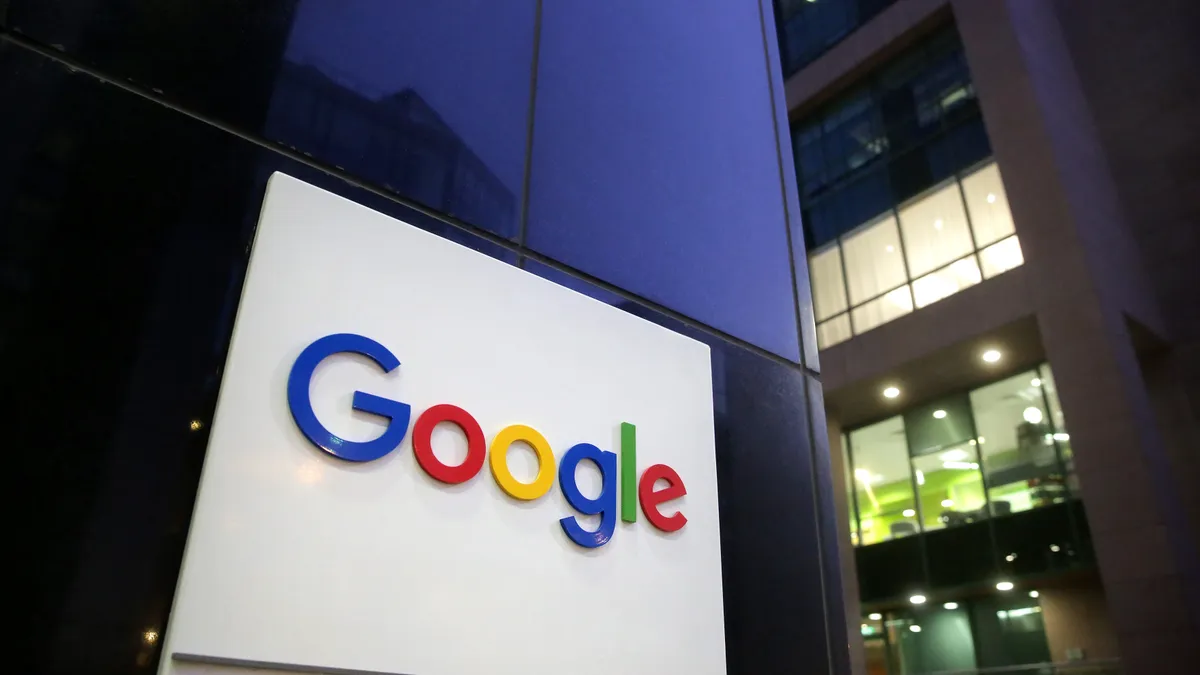Dive Brief:
- Google on Thursday said it plans to roll out new healthcare tools, including a search engine feature that will show consumers available appointment times for select providers.
- The bookings tool will launch in the coming weeks and be free for participating providers. At the outset, it will show appointments for CVS MinuteClinics, and Google is also partnering with scheduling tools Kyruus and Stericycle so their provider users can integrate their appointment times into the search engine.
- The tech company also announced new research exploring whether a smartphone can act as a stethoscope and that it had submitted a new algorithm to detect atrial fibrillation using a Fitbit wearable device to the FDA for review.
Dive Insight:
Google is working to prop up its healthcare efforts following internal project shakiness that led the Mountain View, California-based company to dismantle its Google Health business last year after its leader, David Feinberg, departed to become chief executive at EHR giant Cerner. Google Health was created in 2018 to bring the company's health initiatives under a single umbrella but was disbanded in August following extensive restructuring and with little concrete to show in terms of disrupting the entrenched healthcare industry.
Google may be pivoting back to basics by bolstering healthcare functions of search, the foundation of its business.
In touting its efforts in the space, Google frequently cites data that most people use the internet first when checking symptoms or researching medical information. In December, the company wove additional information into practices' business profiles, including whether they accept Medicare and what languages they offer services in.
The goal of the new booking functionality is to match patients to physicians more easily and cut down on lengthy wait times for primary care appointments that can average 20 days or more, Jackie DeJesse, Google product manager for health search, told reporters on a conference call.
The tool doesn't let patients book appointments on Google's interface. Instead, it redirects them to the provider's website for the actual scheduling process. Google stressed it doesn't store any personally identifying information from providers and it will not use any data for advertising, a perennial concern as big tech giants step deeper into healthcare.
Still, the bookings functionality only shows appointments at specific practices and does not aggregate across providers, which would likely go further in pairing a patient to the closest and most near-term appointment for their needs.
DeJesse said Google is working to expand the feature's functionality among its provider network.
"We're still in the early stages of this product and plan to release more information throughout the year," DeJesse said.
Google has been elbowing further into healthcare, recently announcing a deal with a major EHR vendor to embed its clinical software tools into the records of hospitals across the U.S.
The tech company on Thursday also provided details on other aspects of its health agenda, including its work to develop an algorithm to give Fitbit users a way to passively monitor for signs of AFib, which affects nearly 33.5 million people worldwide.
It's a key focus area for Google's health efforts. In September 2020, Fitbit received FDA clearance for its electrocardiogram app to assess heart rhythm for AFib. Now, its new photoplethysmography algorithm which, per a study, correctly identified AFib episodes with 98% accuracy as confirmed by EKG patch monitors, is under review by the FDA, the company said.
Google also unveiled a new project aiming to increase access to maternal health screening via ultrasounds using AI, in partnership with Northwestern Medicine. It's currently in the early stages of a clinical study to test whether a smartphone app that uses a device's built-in microphone can record an individual's heart sounds when placed over the chest, like an extension of a stethoscope.
Google also is researching whether patients can use their smartphone camera to take photos of their eyes and then use those images to detect cardiovascular problems, expanding on its previous efforts to use AI to detect disease.
Meanwhile, Youtube will begin showing health source information panels and health content shelves in Japan, Brazil and India, following a launch in the U.S. last year.












